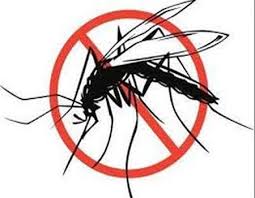“In 2010, the prevalence was 42 per cent, in 2015, it came down to 27 per cent, while in 2018, 22 per cent. So, we are making progress, but far from where we are going.
“We must sustain the pressure on malaria,” he said.
The professor said that efforts were ongoing and innovations were being looked at on the national level.
He said that currently, innovations around the country were being evaluated to ensure that anything hidden which somebody somewhere had discovered could be brought to light.
Mokuolu said that funding remained a huge challenge, adding that the issue of funding must be addressed if the country was to survive malaria completely.
“Conditions, such as malaria, that have a high fatality rate, need to be specially funded as a critical emergency fund.
“Looking at the Coronavirus (COVID-19) pandemic, hasn’t the government diverted resources to the pandemic to the extent that we see it as a problem?
“In as much as we do not want people to die from COVID-19, people should not die from other conditions,” he said.
Mokuolu advised individuals to take personal responsibility for keeping their systems clean such that the malaria parasite could not be transmitted from one person to another.
According to him, the use of Artemisinin Combination Therapy has the dual benefit of curing the patient and contributing to clearing that aspect of the parasite that is responsible for facilitating transmission.
“Imagine if I keep my system clean by taking my personal actions, even if a mosquito visits my blood, it will have nothing to transmit from me.
“The more everyone takes this level of responsibility, the more they are part of the solution in eliminating the disease.
“Also, we should take the national development agenda seriously including having better housing, roads, drainages, waste disposal and practices such as using the long-lasting insecticide control nets.
“All of these will have broad ramifications on malaria,” Mokuolu said.
source: Punch

 A Professor of Pediatrics at the University of Ilorin, Olugbenga Mokuolu, says elimination of malaria in the country will require sustained efforts of stakeholders. Mokuolu stated this at a webinar series on “Monitor Your Health” organised by Monitor Healthcare Limited, a medical telecommunications company, in partnership with AreaDoc Nigeria Limited in Lagos on Tuesday.
A Professor of Pediatrics at the University of Ilorin, Olugbenga Mokuolu, says elimination of malaria in the country will require sustained efforts of stakeholders. Mokuolu stated this at a webinar series on “Monitor Your Health” organised by Monitor Healthcare Limited, a medical telecommunications company, in partnership with AreaDoc Nigeria Limited in Lagos on Tuesday.




